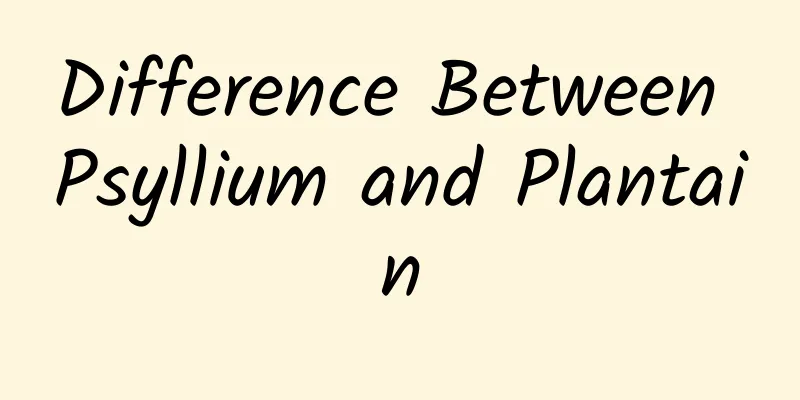What are the effects and functions of the traditional Chinese medicine Huangbo?

|
I believe that everyone must have heard of the traditional Chinese medicine Huangbo. The main effect of Huangbo is that it can play an antibacterial role. It can have a good effect on people who often suffer from the flu, fever, or viruses in their bodies. It can also help the body regulate qi and blood and restore its function. 1. The role of Phellodendron chinense Antibacterial. It has a broad-spectrum antibacterial effect, and is particularly effective against various types of Shigella dysenteriae. In Huanglian Jiedu Decoction, the antibacterial activities of Coptis chinensis and Phellodendron amurense have a synergistic effect. This product has a strong inhibitory and killing effect on Mycobacterium tuberculosis and Leptospira. This product has a significant inhibitory effect on many fungi and trichomonas. This product has anti-influenza virus effects and has a significant selective inhibitory effect on hepatitis B surface antigen. Its mechanism is related to its strong inhibition of bacterial respiration and RNA synthesis. It can also significantly reduce the production of Staphylococcus aureus toxin and promote the phagocytosis of bacteria by leukocytes. Lower blood pressure. This product has a significant blood pressure lowering effect. The various bioalkaloids it contains, such as berberine, phellodendron alkaloids, bamarine, jaspermine and magnolia alkaloids, all have antihypertensive effects. Its antihypertensive mechanism is related to blocking ganglia, inhibiting vascular centers, and resisting sympathetic nerve mediators. Effects on the digestive system. This product has a significant protective effect on experimental ulcers. Its anti-ulcer activity is stronger than that of berberine. Phellodendron chinense, berberine and phellodendron ketone can excite intestinal smooth muscle and promote intestinal contraction; phellodendron lactone can relax the intestine. This product has a significant inhibitory effect on trypsin activity, and this effect is unrelated to berberine. Choleretic. This product has a choleretic effect and can promote the secretion of bile and pancreatic juice and the excretion of bilirubin. Antitussive effect. The volatilization of Phellodendron chinense fruit has an antitussive effect, and its antitussive component is mainly myrcene. Berberine and 5,5'-dimethylfurfural ether were separated from the volatile oil. Clear heat and eliminate steaming. It is used to treat diarrhea and jaundice caused by damp heat. Phellodendron can easily remove damp heat from the large intestine to treat diarrhea. It can also cure symptoms of bone steaming, fatigue fever, night sweats, and spermatorrhea. Phellodendron mainly enters the kidney meridian to relieve bone steaming. It is used to treat symptoms such as yin deficiency and hyperactivity of fire, hot flashes, night sweats, low back pain and spermatorrhea, such as Zhibai Dihuang Wan (Yi Zong Jin Jian), which is made by combining Phellodendron with Anemarrhena asphodeloides, Rehmannia glutinosa, and Chinese yam. |
<<: What are the effects and functions of the traditional Chinese medicine Atractylodes?
>>: What are the effects and functions of Alpinia oxyphylla
Recommend
The efficacy and function of mustard
In today's society, health preservation seems...
Qianlong: Is Qianlong cabbage a cold dish? I have never seen it!
One good thing about the Internet age is that you...
So smart! The exquisite skills of ancient Chinese craftsmen in building cities and bridges
Primitive humans used wood and straw to build sim...
The efficacy and function of Alsophila spinulosa
Alsophila spinulosa is a common Chinese medicine....
Thunderstorms occur frequently in summer. How to ensure flight safety?
Have you ever had the experience of being woken u...
The efficacy and function of yellow cattle wood leaves
The leaves of Huangniumu have the effects of clea...
Why do ants move?
"When ants move and snakes cross the road, h...
We may see more "Barbie Green" in the future
Recently, the movie "Barbie" has set of...
How can we get a reliable cancer screening that can cost thousands of dollars?
At the end of each year, many institutions organi...
When is the best time to take gastrointestinal Chinese medicine?
Who knows that winter is getting closer and close...
The efficacy and function of the Bole tree
The medical value of the bole tree is beyond our ...
This article will show you the magical ocean temperature difference power generation
The ocean is the world's largest solar collec...
The realm of "stealing skills": creating oneself from classics | Yihai Shizhen
How did the talented painter Lippi learn from oth...
What are the effects and functions of biliary grass?
The medicinal value of dandelion is relatively hi...
This plant "used to feed pigs" changed the whole world
The sweet potatoes roll happily in the pot and so...









